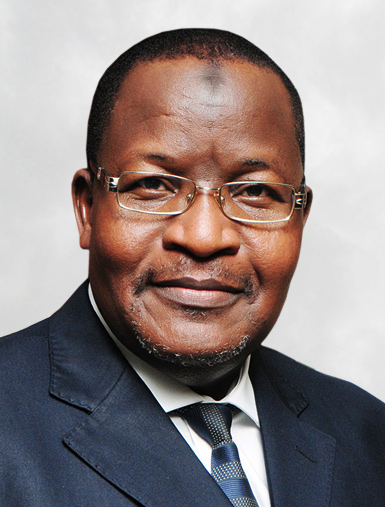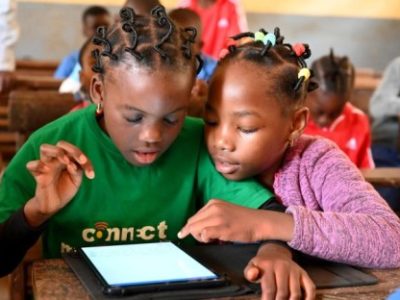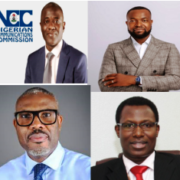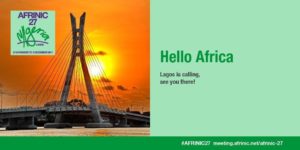

AFRINIC 27
The Nigerian Communications Commission (NCC) has assured that it will thicken the fight against cybercrime to foster a crime free cyberspace and has asked for stakeholders support. The Executive Vice Chairman, NCC, Professor Umar Garba Danbatta at the 27th AFRINIC Meeting (AFRINIC-27) currently holding in Lagos, Nigeria told the audience at the opening ceremony that Nigeria and the International Telecommunications Union (ITU) were already working to set up the Africa Regional Cybersecurity Center (RCC) in Abuja.
The centre will be used for Africa Regional Cybersecurity information sharing on cyber-attacks, threats, malwares and viruses; and to also train countries within the Africa sub-region on Cybersecurity related issues.
Danbatta’s statements underscore the continent’s growing concern over the rise of online security breaches and the desire to join global efforts at checkmating cyber-rogues.
His words: “Nigeria through NCC, is partnering with International Telecommunications Union (ITU) to set up Africa Regional Cybersecurity Center (RCC) in Abuja. The center will be used for Africa Regional Cybersecurity information sharing (cyber-attacks, threats, malwares and viruses etc) and also to train countries within the Africa sub-region on Cybersecurity related issues.
Also, the Nigerian regulator told the participants that the NCC was “partnering with relevant agencies to provide proactive measures in mitigating cybercrime.” In the wise, “the Commission is setting up a Sectorial Computer Security Incident Response Team (CSIRT) center that will collaborate with the ngCERT (domicile in the office of the NSA), in tackling issues that relate to the telecommunications industry in the fight against cybercrime.” Below is excerpts of Danbatta’s speech:
“The African Regional Internet Registry AFRINIC, has contributed a lot in providing platforms for Internet Development in Africa, from about 4.5 million Internet Users in 2002 to over 388 Million users in 2017 (http://www.internetworldstats.com)
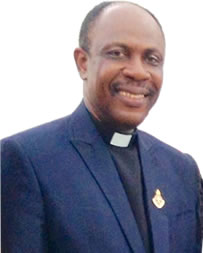

Sunday Folayan of NIRA
“The growth of the Internet Industry in Africa, comes with the challenge of sustaining its development to ensure that the industry maintains global relevance and contends with challenges of low Internet penetration. To stimulate this growth and harness the opportunities of technological advancement, massive investment in internet infrastructures is needed, particularly broadband, which will enable job creation, economic growth, and global competitiveness. This can be achieved through sustainable policies and collaborative efforts.
“As the internet evolves, so also does cybercrime. This remains an immense challenge for internet development in Africa and the entire world, crucial collaboration within sub-regional and regional needed and this is the key in preventing and mitigating cyber attracts.
“Nationally, NCC is partnering with relevant agencies to provide proactive measures in mitigating cybercrime. The Commission is setting up a Sectorial Computer Security Incident Response Team (CSIRT) center that will collaborate with the ngCERT (domicile in the office of the NSA), in tackling issues that relate to the telecommunications industry in the fight against cybercrime.
“On the international level, Nigeria through NCC, is partnering with International Telecommunications Union (ITU) to set up Africa Regional Cybersecurity Center (RCC) in Abuja. The center will be used for Africa Regional Cybersecurity information sharing (cyber-attacks, threats, malwares and viruses etc) and also to train countries within the Africa sub-region on Cybersecurity related issues.
Broadband access is key to any national development agenda, and the Nigerian National Broadband Plan (NBP) 2013 has set a target of 30% penetration by 2018, The Commission (NCC) recognizes its prime responsibility in the actualization of the NBP, as one of the strategic objectives revered in its 8-Point Agenda, “facilitation of broadband penetration” which will enable the NCC meet and even surpass the 30% target of broadband penetration in the country by 2018, as at September 2017 (Broadband Commission 2017), the Nigeria broadband penetration stands at 21.8%.
“In this regard, The Commission’s efforts in the actualization of increased broadband penetration in Nigeria can be seen in this direction;
- Two slots in the 700MHz band have been earmarked for Commercial Broadband deployment;
- The 800MHz band also known as the Digital Dividend 1 has been re-planned and licensed for 4G Long Term Evolution (LTE) deployment;
- The 900MHz E-GSM band has been licensed for 4G LTE deployment;
- 70/80GHz band (E-Band) has been opened to facilitate Broadband deployment;
- 3 GHz band was licensed for 4G LTE Deployment;
- Part of the 1800MHz band has been re-farmed by some Mobile Operators for 4G LTE deployments.
“This means that there is enormous potential for growth and investment.
There has been amazing progress in the development of IXPs in Africa but still much to be done to improve national and cross-border interconnection within the region, also further consolidate data, and enable Africa to collaborate more on data management within the region, as well as develop its data and privacy framework to enable the region even further collaborate globally to address the new digital era.
“To support emerging technologies, we need to create an enabling environment for IPv6 deployment. We need to engage more in the area of Internet Governance and other similar initiatives from national to sub-regional to regional and global to contribute and share best practices that can help to grow the internet.
“I acknowledge the effort of internet society and the stakeholders in helping the development of internet in the African region. It is acknowledged that taking Internet to the next level, requires collaboration, education and sensitization. The NCC is therefore committed to supporting the African Internet industry as much as possible with provision of good regulatory policies in Nigeria, which will ensure availability, affordability and accessibility to high speed internet that would drive emerging technologies and deployment of more services.
“I urge all the participants to take full advantage of the opportunity this meeting offers, as it will ensure and support the sustainability of the ongoing or projected developments for the Industry.”
“I want to express my appreciation to the host of this meeting (NiRA) for inviting me, and all partnering organizations for their support, and AFRINIC for giving Nigeria the opportunity to host this meeting for the second time.”


